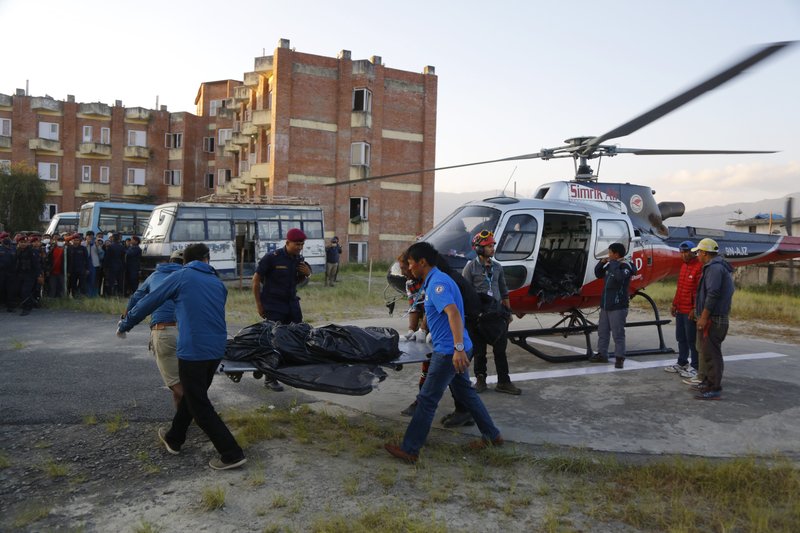KATHMANDU, Nepal -- Rescuers hampered by difficult, remote terrain took two days to recover the bodies of nine climbers, including one of the world's best, who hoped to map a new route to a Himalayan peak in Nepal that hasn't been scaled in eight years.
Local Police Chief Bir Bahadur Budamagar said villagers reached the climbers' devastated campsite on Saturday on Gurja Himal, a less-popular but pristine mountain in the shadow of Dhaulagiri, the world's seventh-highest peak and a day's walk from the nearest village.
The climbers included Kim Chang-ho, the first South Korean to summit all 14 Himalayan peaks over 26,250 feet without using supplemental oxygen, who was leading the expedition with four other South Koreans and four Nepalese guides.
A sixth Korean climber had become ill and was in a village far below the base camp during the storm. When the members of the expedition team broke radio contact and went silent, the climber, who has not been identified, called Wangchu Sherpa's Trekking Camp Nepal agency in Kathmandu, which equipped and organized the expedition.
Wangchu Sherpa said that after Kim achieved his record 14th summit in 2013, he had been concentrating on climbing routes that hadn't been tried before. Sherpa said he didn't have any particular reason to be concerned about Kim, even though he was trying a new route on a challenging mountain.
Nepal offers hundreds of mountains to climb, and mountaineers generally choose those where the routes and conditions are well known.
Only 30 climbers have ever reached the peak of the 23,590-foot Gurja Himal, government tourism director Surendra Thapa said, and Kim was not among them.
Many climbers are discouraged from the mountain at least in part because of a legal requirement to have at least three trained Nepalese guides along to receive a permit, Thapa said.
The damage to the climbers' bodies, including broken limbs and smashed skulls, indicated a violent wind carrying chunks of ice swept them away from their camp site, Budamagar said. The bodies were found spread in a 1-mile radius.
The bodies of Kim and four other South Koreans who were killed will arrive in South Korea on Wednesday, according to an official from South Korea's Corean Alpine Club.
Information for this article was contributed by Kim Tong-hyung of The Associated Press.
A Section on 10/16/2018

